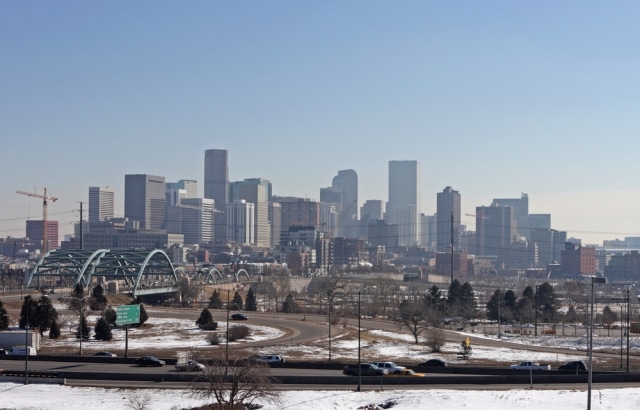Colorado has become the first U.S. state to pass rules regulating methane air pollution from drilling and fracking operations.
The Colorado Air Quality Control Commission (AQCC) voted 8-1 on Sunday, February 23, 2014 to require oil and gas companies operating in the state to start testing their pipelines, drill rigs, storage tanks, compressor stations and other sources of potential methane leakage on a monthly basis using new, more sensitive instruments like infrared cameras.
Companies will also be required to monitor, detect and repair leaks of other types of hydrocarbons, like volatile organic compounds (VOCs). They must also provide aggressive timelines for the repair of any leaks, and the new rules put stricter limits on emissions from drilling operations located near residential and recreational areas.
The Colorado Department of Public Health and the Environment expects the new rules to reduce VOC emissions in Colorado by approximately 92,000 tons a year, about equivalent to the amount emitted by all of the cars in Colorado over one year.
The new rules grew out of a collaboration between a coalition of environmental groups led by the Environmental Defense Fund and three of the largest energy companies operating in the state: Noble Energy, Inc., Encana Corporation and Anadarko Petroleum Corporation.
Some industry groups tried to weaken the rules by arguing they should only apply to more heavily populated areas of the state and not statewide, but the AQCC resisted efforts to water down the new rules and adopted them largely as they were written, citing overwhelming public support for reining in air pollution from the drilling industry.
The new rules may also boost employment in the state. A spokesman who testified before the AQCC on behalf of Noble Energy said it will cost the company $3 million and they will have to hire 16 additional people to comply with the new rules.
Image credit: Smog layer over Denver, Colorado via Shutterstock.
Subscribe to our newsletter
Stay up to date with DeSmog news and alerts







